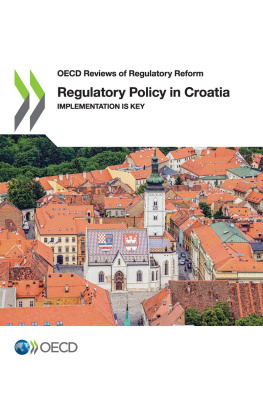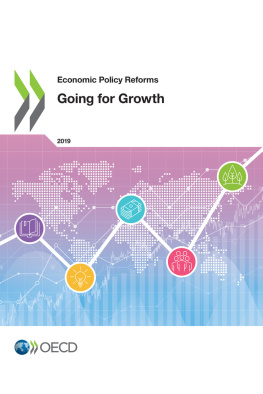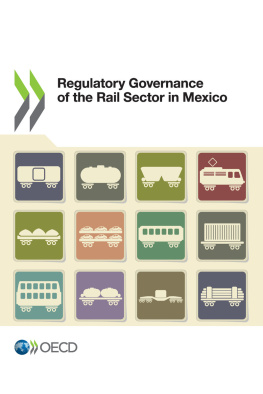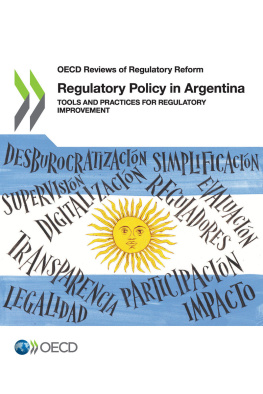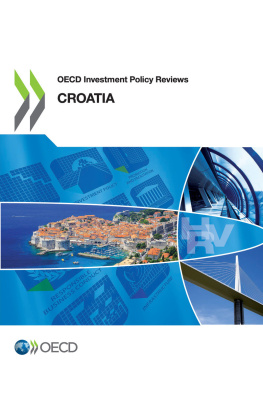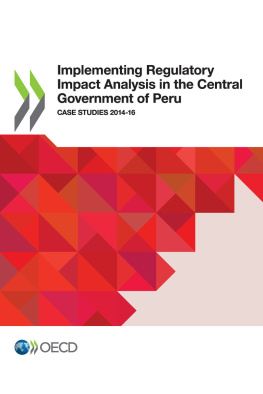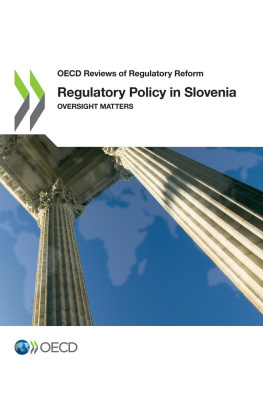OECD - Regulatory Policy in Croatia
Here you can read online OECD - Regulatory Policy in Croatia full text of the book (entire story) in english for free. Download pdf and epub, get meaning, cover and reviews about this ebook. year: 2019, publisher: OECD Publishing, genre: Politics. Description of the work, (preface) as well as reviews are available. Best literature library LitArk.com created for fans of good reading and offers a wide selection of genres:
Romance novel
Science fiction
Adventure
Detective
Science
History
Home and family
Prose
Art
Politics
Computer
Non-fiction
Religion
Business
Children
Humor
Choose a favorite category and find really read worthwhile books. Enjoy immersion in the world of imagination, feel the emotions of the characters or learn something new for yourself, make an fascinating discovery.
Regulatory Policy in Croatia: summary, description and annotation
We offer to read an annotation, description, summary or preface (depends on what the author of the book "Regulatory Policy in Croatia" wrote himself). If you haven't found the necessary information about the book — write in the comments, we will try to find it.
OECD: author's other books
Who wrote Regulatory Policy in Croatia? Find out the surname, the name of the author of the book and a list of all author's works by series.
Regulatory Policy in Croatia — read online for free the complete book (whole text) full work
Below is the text of the book, divided by pages. System saving the place of the last page read, allows you to conveniently read the book "Regulatory Policy in Croatia" online for free, without having to search again every time where you left off. Put a bookmark, and you can go to the page where you finished reading at any time.
Font size:
Interval:
Bookmark:
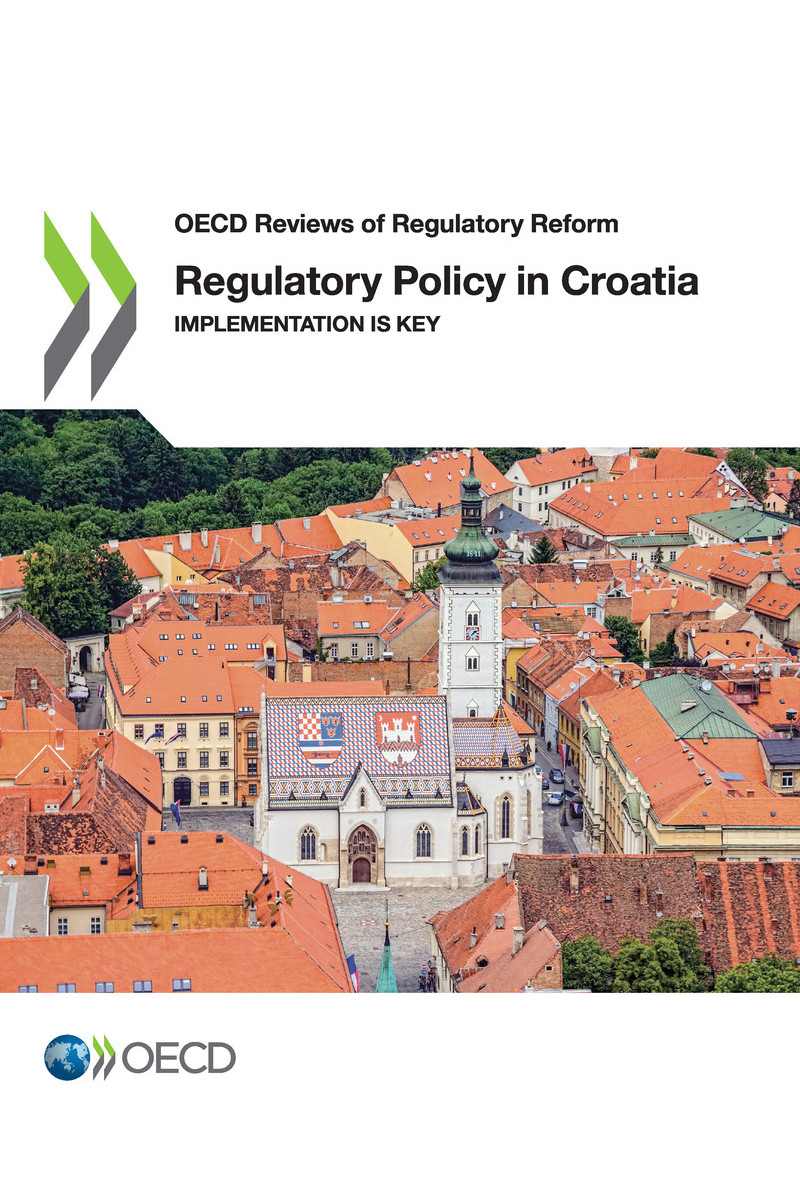
OECD (2019), Regulatory Policy in Croatia: Implementation is Key , OECD Reviews of Regulatory Reform, OECD Publishing, Paris, https://doi.org/10.1787/b1c44413-en .
Croatia has made great strides in strengthening its regulatory policy framework and implemented a broad set of regulatory reforms to support more effective law-making and reduce administrative burdens for businesses. The recently introduced RIA law and the law on access to information set out requirements to conduct impact assessments and public consultations and accompanying guidance documents have been provided to regulators to help them implement practices as set out in the OECD 2012 Recommendation on Regulatory Policy and Governance .
The OECD Review of Regulatory Policy in Croatia assesses the development of these reforms, and takes a detailed look at how the reforms are put into practice. It reviews the policies, institutions, and tools employed by the Croatian government to design, implement and enforce regulations. This includes policies on administrative simplification, ex ante and ex post evaluation of regulations, public consultation practices, as well as regulatory enforcement and inspections. The review also contains a special chapter on the taxation of small and medium-sized enterprises. The review then provides policy recommendations based on best international practices and peer assessment to strengthen the governments capacity to manage regulatory policy.
The review finds that Croatia has successfully put in place some of the essential tools of better regulation. For example, stakeholder engagement via the e-consultation platform e-Savjetovanja is common practice and RIA starts relatively early in the process and looks at a wide variety of impacts. Challenges remain, however, to ensure that the tools are used effectively and both primary and secondary legislation are targeted. The review makes recommendations to address these particular challenges. For example, Croatia would benefit from strengthened analytical capacities in line ministries, as well as renewed political commitment to better regulation.
The review methodology draws on decades of experience in better regulation reflected in the OECD 2012 Recommendation on Regulatory Policy and Governance . The Recommendation identifies the measures that governments can and should take to support better regulation. These measures are used as a baseline for assessing regulatory management capacity in Croatia. The review also uses the 2014 OECD Best Practice Principles for Regulatory Policy: Regulatory Enforcement and Inspections and the OECD Enforcement and Inspections Toolkit , which address the design of effective compliance policies and institutions and the process of reforming inspection regimes to achieve policy objectives.
The OECD Regulatory Policy Committee leads the programme on regulatory governance with the support of the Regulatory Policy Division of the OECD Public Governance Directorate. Regulatory policy country reviews are a key part of the Committees programme. The Directorates mission is to help government at all levels design and implement strategic, evidence-based and innovative policies to strengthen public governance; respond effectively to diverse and disruptive economic, social and environmental challenges and deliver on governments commitments to citizens. The goal of the programme is to support sustainable economic and social development through sound government frameworks that enable evidenced-based policy making.
This document was produced with the financial assistance of the European Union. The views expressed herein can in no way be taken to reflect the official opinion of the European Union.
The review was prepared by a multidisciplinary team led by Daniel Trnka, Senior Policy Analyst, under the guidance of Nick Malyshev, Head of the Regulatory Policy Division, and the leadership by Marcos Bonturi, Director of the Public Governance Directorate. The following team members took primary responsibility for different sections of the review: Daniel Trnka for Chapters 4 (stakeholder engagement and public consultations) and 7 (regulatory compliance, enforcement and inspections); Eric Thomson for Chapters 5 (the development of new regulations), 6 ( ex post evaluation of regulation) and 8 (multilevel governance: sub-national level); Yola Threr for Chapters 1 (macroeconomic and political context), 2 (context for better regulation), 3 (institutional framework and capacities) and 9 (multi-level governance: EU level). Sarah Perrett from the OECD Centre for Tax Policy prepared Chapter 10 (SME taxation in Croatia). The review team would like to thank Bert Brys and Sarah Perrett for the great collaboration. Many thanks go to delegates of the OECD Regulatory Policy Committee as well as to colleagues from the OECD Regulatory Policy Division and the Investment Division for providing useful comments and support; to Claudia Paupe and Anna-Sofia Kanjovski for lending administrative and organisational support; and to Jennifer Stein for co-ordinating the editorial process. The financial support of the European Union through its Structural Reform Support Service (SRSS) is gratefully acknowledged.
The team included peers from the members of the OECD Regulatory Policy Committee, who actively participated in the fact-finding mission to Croatia and provided key inputs throughout the development of the review: Nadia Marin from the Office for Regulatory Quality in Italy and Andrea Garca Vidal from the Office for Co-ordination and Normative Quality in Spain. Klvi Noor from the Ministry of Justice in Estonia, Morten Vestergaard Hansen from the Danish Business Authority, Martin Traynor from the UK Cabinet Office and Daniel Khnhenrich from the German Federal Statistical Office also participated in the workshops in Croatia.
Font size:
Interval:
Bookmark:
Similar books «Regulatory Policy in Croatia»
Look at similar books to Regulatory Policy in Croatia. We have selected literature similar in name and meaning in the hope of providing readers with more options to find new, interesting, not yet read works.
Discussion, reviews of the book Regulatory Policy in Croatia and just readers' own opinions. Leave your comments, write what you think about the work, its meaning or the main characters. Specify what exactly you liked and what you didn't like, and why you think so.

